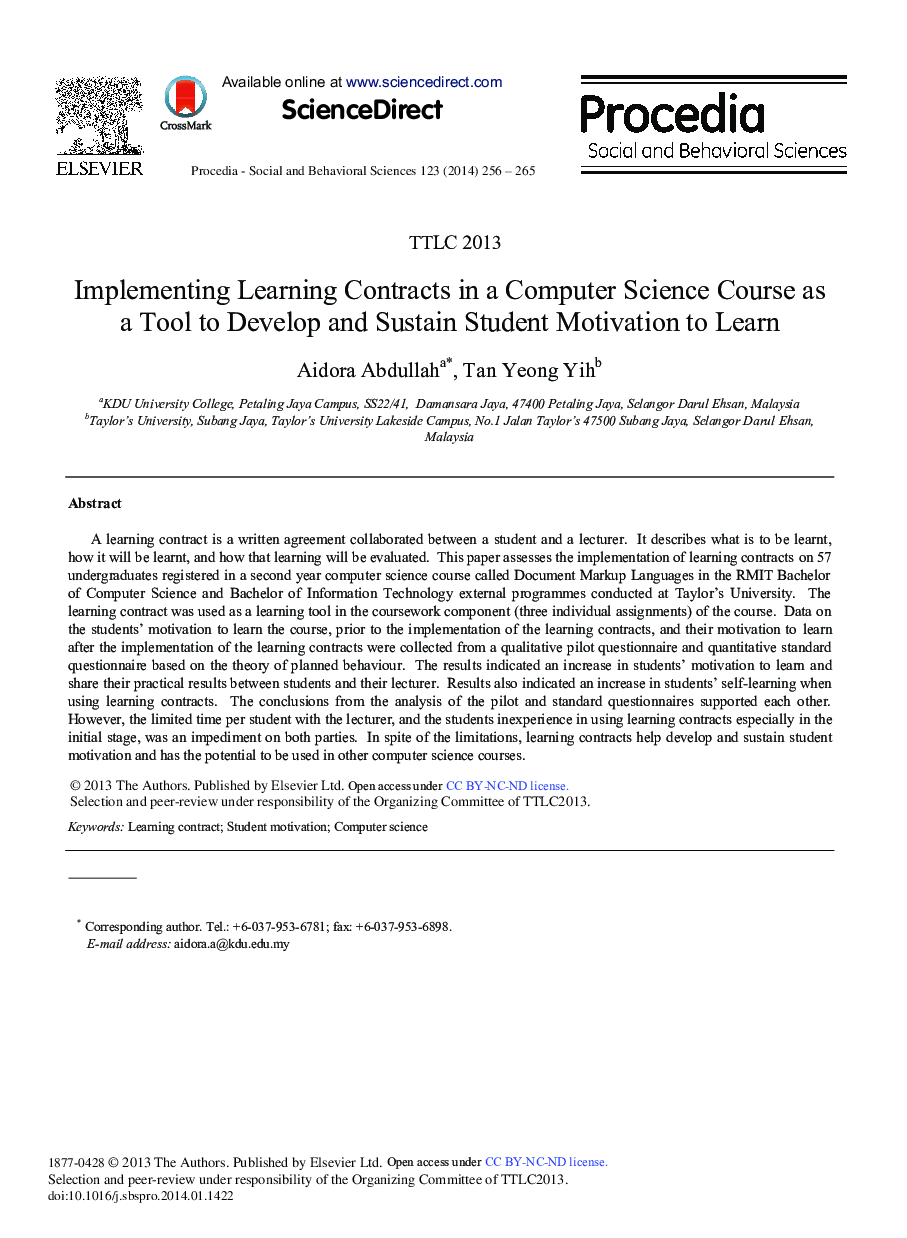| Article ID | Journal | Published Year | Pages | File Type |
|---|---|---|---|---|
| 1114407 | Procedia - Social and Behavioral Sciences | 2014 | 10 Pages |
A learning contract is a written agreement collaborated between a student and a lecturer. It describes what is to be learnt, how it will be learnt, and how that learning will be evaluated. This paper assesses the implementation of learning contracts on 57 undergraduates registered in a second year computer science course called Document Markup Languages in the RMIT Bachelor of Computer Science and Bachelor of Information Technology external programmes conducted at Taylor”s University. The learning contract was used as a learning tool in the coursework component (three individual assignments) of the course. Data on the students” motivation to learn the course, prior to the implementation of the learning contracts, and their motivation to learn after the implementation of the learning contracts were collected from a qualitative pilot questionnaire and quantitative standard questionnaire based on the theory of planned behaviour. The results indicated an increase in students” motivation to learn and share their practical results between students and their lecturer. Results also indicated an increase in students” self-learning when using learning contracts. The conclusions from the analysis of the pilot and standard questionnaires supported each other. However, the limited time per student with the lecturer, and the students inexperience in using learning contracts especially in the initial stage, was an impediment on both parties. In spite of the limitations, learning contracts help develop and sustain student motivation and has the potential to be used in other computer science courses.
